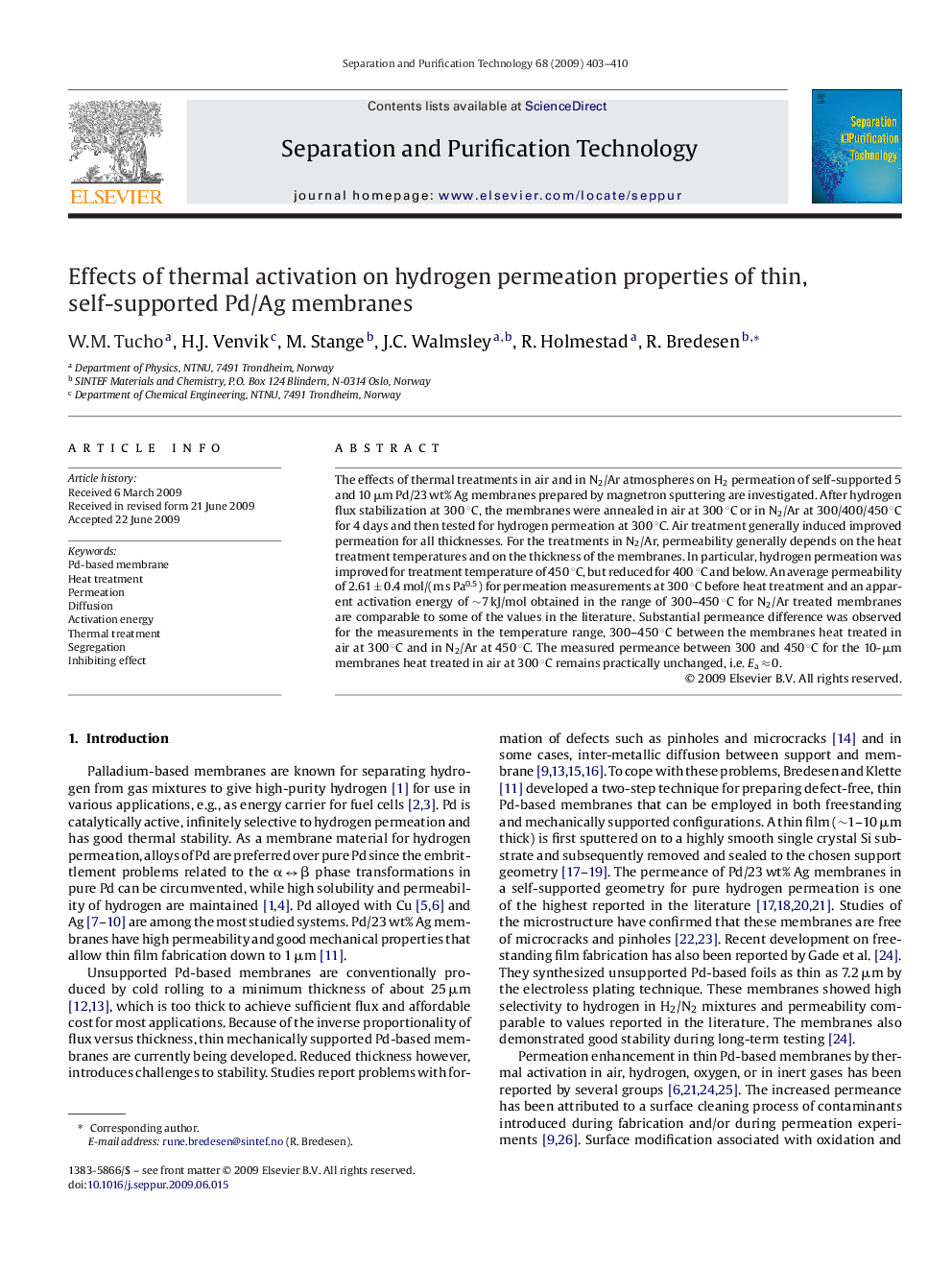| Article ID | Journal | Published Year | Pages | File Type |
|---|---|---|---|---|
| 643279 | Separation and Purification Technology | 2009 | 8 Pages |
The effects of thermal treatments in air and in N2/Ar atmospheres on H2 permeation of self-supported 5 and 10 μm Pd/23 wt% Ag membranes prepared by magnetron sputtering are investigated. After hydrogen flux stabilization at 300 °C, the membranes were annealed in air at 300 °C or in N2/Ar at 300/400/450 °C for 4 days and then tested for hydrogen permeation at 300 °C. Air treatment generally induced improved permeation for all thicknesses. For the treatments in N2/Ar, permeability generally depends on the heat treatment temperatures and on the thickness of the membranes. In particular, hydrogen permeation was improved for treatment temperature of 450 °C, but reduced for 400 °C and below. An average permeability of 2.61 ± 0.4 mol/(m s Pa0.5) for permeation measurements at 300 °C before heat treatment and an apparent activation energy of ∼7 kJ/mol obtained in the range of 300–450 °C for N2/Ar treated membranes are comparable to some of the values in the literature. Substantial permeance difference was observed for the measurements in the temperature range, 300–450 °C between the membranes heat treated in air at 300 °C and in N2/Ar at 450 °C. The measured permeance between 300 and 450 °C for the 10-μm membranes heat treated in air at 300 °C remains practically unchanged, i.e. Ea ≈ 0.
